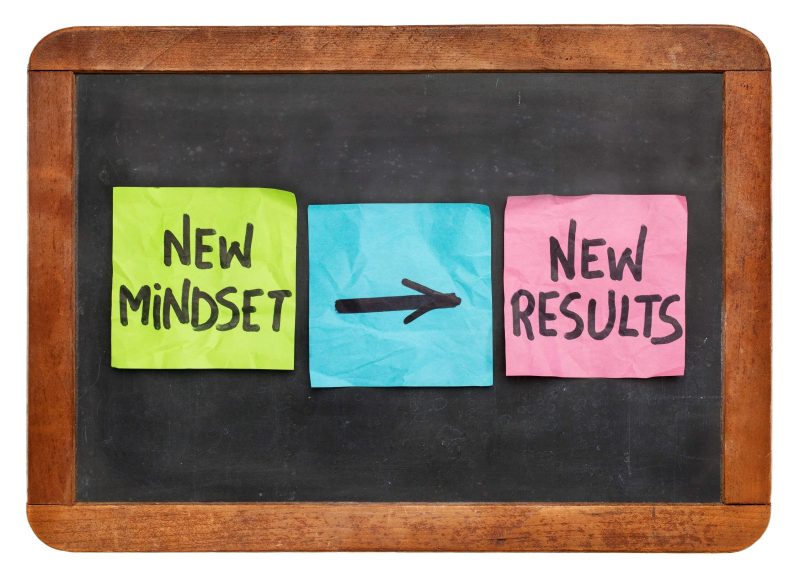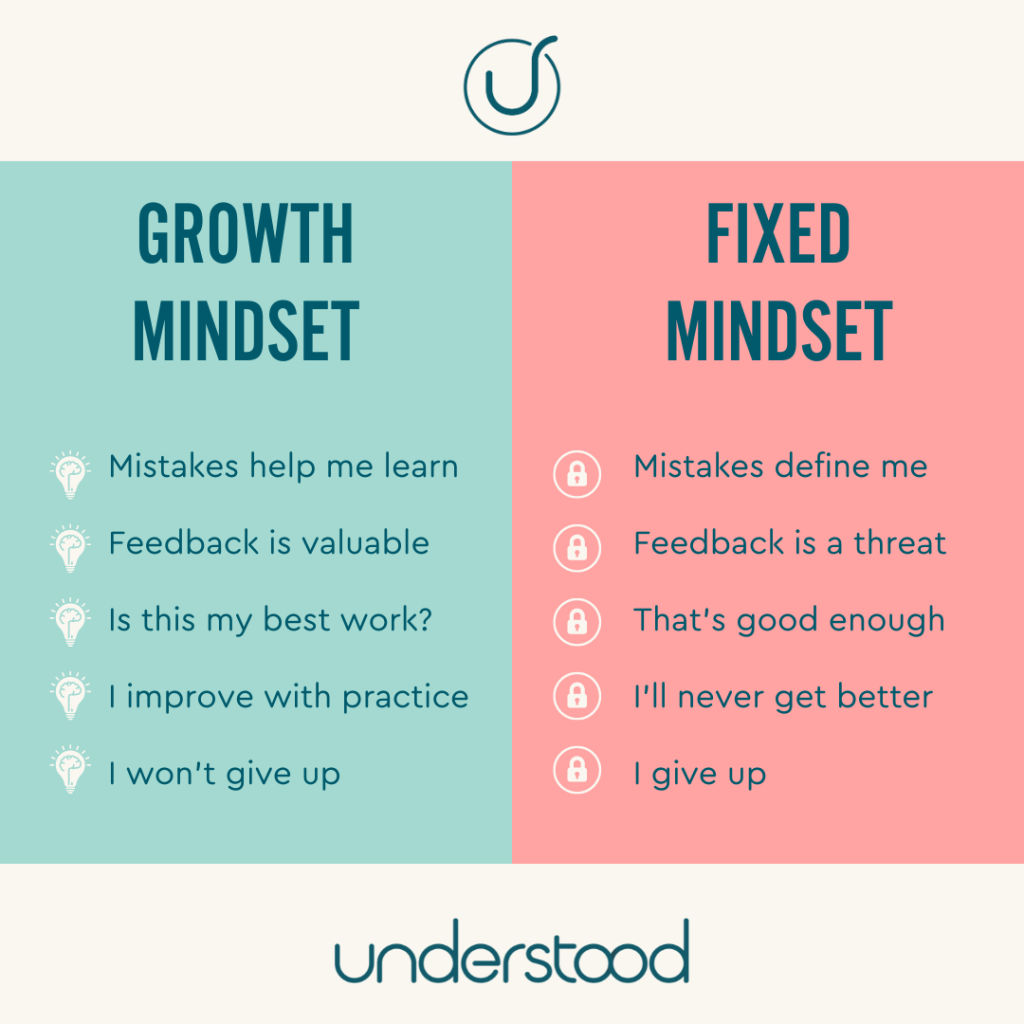
The power of mindset: unlocking your potential
By Carolyn Quainton in Emotional Intelligence, Inspiration, Resilience
At Understood, we champion the power of a growth mindset. Our training programmes are grounded in the belief that growth and development are essential to success.
One of the most compelling ideas that supports this belief comes from psychologist Carol Dweck’s book, Mindset. Dweck explains that how we view our abilities, whether as fixed or as something we can develop—can shape our success, relationships, and overall happiness.
However, Dweck has highlighted a growing misconception. Many people now use the term “growth mindset” without fully understanding what it means. It’s not simply about being open to change or putting in effort. A true growth mindset involves committing to continuous learning, seeking feedback, and using setbacks as fuel for improvement.
What does a ‘growth’ mindset really mean?
Put simply, it’s the belief that talents and abilities can be developed through hard work, the right strategies, and input from others. Individuals with this belief system tend to achieve more because they prioritise learning over proving themselves.
Growth individuals believe they can develop their abilities through:
- Consistent effort
- Effective strategies
- Feedback from others
Companies that adopt a growth mindset see:
- Empowered employees
- Increased collaboration
- Stronger innovation
In contrast, fixed environments tend to foster:
- Unhealthy competition
- Risk aversion and fear of failure
- A reluctance to share ideas or admit mistakes
One widespread misunderstanding is that encouraging a growth means praising effort alone. While effort matters, it’s far more important to recognise progress, learning, and thoughtful approaches. Focus on the outcomes driven by deep, meaningful learning, not just hard work.

Fixed vs Growth
People with a fixed mindset tend to see their abilities as unchangeable. As a result, they often avoid challenges and fear failure, which limits their development.
Fixed behaviours:
- Avoiding challenges
- Viewing failure as personal inadequacy
- Prioritising validation over learning
Growth behaviours:
- Embracing challenges as learning opportunities
- Believing improvement is possible with effort, reflection, and persistence
- Welcoming feedback and collaboration
In growth workplaces, employees feel safe to take calculated risks, learn from mistakes, and innovate, even when immediate success isn’t guaranteed. This leads to a more resilient, adaptable workforce.
Fostering a growth mindset culture
Adopting a growth mindset goes beyond mission statements or buzzwords. Companies that truly live this value create environments where learning is encouraged and development is supported.
Key elements of a growth mindset culture include:
- Recognising lessons learned, not just successes
- Encouraging experimentation and innovation
- Offering professional development opportunities
- Prioritising teamwork over competition
Conversely, organisations that focus solely on natural talent or quick wins risk creating fixed-mindset cultures. These environments often discourage transparency, learning from failure, and long-term development.
Can we change our mindset?
The good news is that mindsets can evolve. While we may fall back into old ways of thinking when faced with criticism or failure, it’s possible to shift it through self-awareness and practice.
Steps to shift your mindset:
- Identify your fixed-mindset triggers
- Notice when you feel defensive or threatened
- Reframe these moments as opportunities for growth
At Understood, we believe in the power of a growth mindset. Whether in your personal life or professional journey, embracing a mindset that values learning, effort, and development will help us to unlock our potential and continue to grow.
Talk to us, explore our website, read our blog, and follow us on LinkedIn to learn more and discover ways to grow a more successful business.


